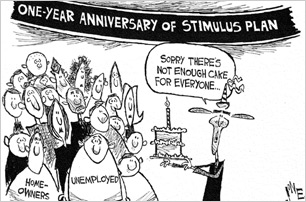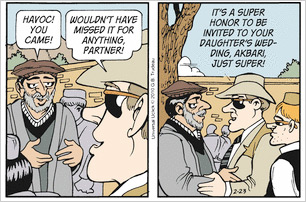
A Cost-Benefit Analysis of the Dubai AssassinationWe won't know if it was worth it until we have all the facts.
Posted Monday, Feb. 22, 2010, at 2:56 PM ET Salim Yamadayev was killed by a gold-colored Russian-made pistol. He was shot in the underground parking garage of a luxury apartment block in Dubai, not far from the sea. The efficient Dubai police found the weapon and the black gloves used by the assassins, and with this evidence in hand, they accused a deputy prime minister of Chechnya of the killing. Yamadayev was an opponent of Chechen leader Ramzan Kadyrov—a Russian puppet—one of the last opposition leaders still alive. He was eliminated on March 28, 2009, less than a year ago.
Salim Yamadayev was killed by a gold-colored Russian-made pistol. He was shot in the underground parking garage of a luxury apartment block in Dubai, not far from the sea. The efficient Dubai police found the weapon and the black gloves used by the assassins, and with this evidence in hand, they accused a deputy prime minister of Chechnya of the killing. Yamadayev was an opponent of Chechen leader Ramzan Kadyrov—a Russian puppet—one of the last opposition leaders still alive. He was eliminated on March 28, 2009, less than a year ago.
The Chechen regime—which has denied responsibility for the assassination—must be happy with the outcome. The Russians seem quite pleased, too. The consequences for the assassins? None at all. For the Chechen government? None. For the deputy prime minister? None. For Dubai-Russian relations? None. So, from the assassins' point of view, was the job worth the risk? In this case, the answer seems quite clear. But that's an easy case. It's much more complicated to make such a calculation when neither the cost nor the benefit is known to the public.
Nearly a year has passed since the Chechen assassination, and Dubai's chief of police is now showing off his skills once again. A Palestinian terrorist, Mahmoud al-Mabhouh of Hamas, was murdered in Dubai at the end of January, and shortly afterward, the police were able to post photos and videos detailing the assassins' movements in Dubai, to reveal the aliases on their passports, and to conclude "with 99 percent certainty" that this was the work of operatives from Israel's Institute for Intelligence and Special Operations—known as Mossad.
Mabhouh was no saint. More than 20 years ago he killed two abducted Israeli soldiers, and in more recent times he was a human link between Hamas and Iran, facilitating the shipment of weapons into the Gaza Strip and the shipment of Hamas militiamen to training camps organized by Iran's Revolutionary Guard. Few will shed tears over his untimely death, not Israelis, not Western intelligence-service heads, not all Palestinians, not even Dubai officials. So, whether Mabhouh "deserved" his untimely death is no tough moral question.
The question currently being considered around the world is whether Mabhouh's death justifies the brouhaha and the possible damage to Israel's reputation and operational abilities. And the story really is worthy of the extensive coverage. The mysterious, false-beard-wearing assassins; the forged passports; the resourceful police chief; the innocent Israelis discovering that their names had been used in a game of international intrigue.
Columnist Ronen Bergman described the atmosphere of amused curiosity prevalent in Israel: "Israelis woke up Wednesday morning to pictures of 11 individuals plastered on the front page of every newspaper. The familiar guessing game began immediately: Don't I know him? Didn't we serve in the same army unit? Isn't that guy my geeky neighbor, the one who says he's an accountant?" Bergman quotes an acquaintance who "swore she had dated one of the men"—a professional assassin! I have no such romantic connection to report, just the occasional co-worker testifying that he knows a member of the group. Or so his wife says.
But the gossipy nature of most accounts isn't enough to quash the more serious questions. Israel—officially mum on the question of whether Mossad carried out the attack—finds itself in the spotlight: asked by Brits and Germans to explain how their passports came to be used; criticized by Jewish immigrants unhappy about having their identities stolen; vilified by experts who suspect that this operation was yet another bungled mission ordered by Prime Minister Benjamin Netanyahu. As a Ha'aretz colleague put it:
Israelis enjoy a love-hate relationship with … Mossad. When they succeed in another James Bond-style operation, we sing their praises as an example of all good things Israeli: innovation, daring, outsmarting the competition. But when they screw up, we are quick to identify all of our social maladies: arrogance, carelessness, disregarding the rules".
on the Fray
 Maybe John Poindexter's "Total Information Awareness" Wasn't a Terrible Idea
Maybe John Poindexter's "Total Information Awareness" Wasn't a Terrible Idea Can Lil Wayne Bring His $150,000 Grill to Prison With Him?
Can Lil Wayne Bring His $150,000 Grill to Prison With Him? Help! I'm a Soldier Returning From Combat, and People Keep Asking, "Did You Kill Anyone?"
Help! I'm a Soldier Returning From Combat, and People Keep Asking, "Did You Kill Anyone?" Applebaum: What Obama Should Do if Israel Bombs Iran
Applebaum: What Obama Should Do if Israel Bombs Iran Latest Amy Bishop Lunacy: What Is a Herpes Bomb? And Would It Even Work?
Latest Amy Bishop Lunacy: What Is a Herpes Bomb? And Would It Even Work? Meet Nicki Minaj, the Most Interesting Woman in Rap Today
Meet Nicki Minaj, the Most Interesting Woman in Rap Today














